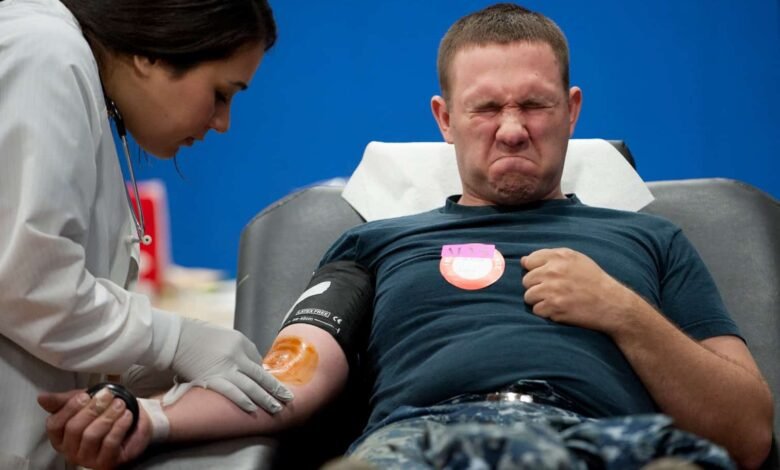Hepatitis A

What is Hepatitis A?
Hepatitis A is an inflammation of the liver caused by the hepatitis A virus (HAV). Hepatitis is a general term that means inflammation and swelling of the liver.
Inflammation of the liver can be caused by infection, exposure to alcohol, certain drugs, chemicals, poisons, or a disorder of the immune system.
HAV is one of the most common viruses that can cause hepatitis in Europe. Hepatitis A does not cause chronic disease.
Although the liver becomes inflamed and swollen, it heals completely in most people without any long-term consequences.
What are the symptoms of Hepatitis A?
Many people with HAV infection have no symptoms. Sometimes the symptoms are so mild that they go unnoticed.
Symptoms are more common in the elderly than in children. People who are asymptomatic can spread the hepatitis A virus and it is difficult to know when they have been exposed to it.
Hepatitis A symptoms usually develop between 2 and 6 weeks after exposure to the virus. Symptoms are usually not severe and go away on their own over time. The most common symptoms are:
- Nausea
- Vomiting
- Diarrhea, especially in children
- Pale or gray-colored stools
- Slight fever
- Loss of appetite
- Rash
- Fatigue and feeling weak
- Jaundice
- Urine is dark brown in color like coca cola or strong tea
- Pain in the area of the liver, in the right side of the abdomen, just below the rib cage
What causes hepatitis A?
Hepatitis A is caused by the hepatitis A virus, which is passed from person to person , through contaminated food, water or other beverages, including through ice, blood, feces, as well as through direct contact.
This virus is extremely resistant and can survive in the external environment for an extended period of time, making it particularly dangerous in conditions of poor hygiene and sanitation.
The virus enters the body through the epithelium of the mouth or intestines, where it attaches to cells and begins its life cycle.
It migrates to the liver, where it is introduced into liver cells and begins to multiply. This process usually takes about 2 to 6 weeks, after which symptoms of the disease begin to appear.
The symptoms of hepatitis A are the result of the body’s inflammatory response to the viral infection.
Inflammation in the liver can cause abdominal pain, fatigue, jaundice (yellowing of the skin and whites of the eyes), and other symptoms.
However, many people with hepatitis A do not develop visible symptoms, especially children, which can make it difficult to diagnose the disease.
The hepatitis A virus can also spread to other parts of the body, including blood and faeces, which means it can be passed to other people through direct contact or through contaminated objects, food or water.
This makes hepatitis A particularly dangerous in conditions of poor hygiene and sanitation, where the virus can easily spread in the community.
Hepatitis A treatment
There are no specific drugs to treat hepatitis A. Most people do not need treatment other than to relieve symptoms.
However, if your condition worsens or you become severely dehydrated, you should seek emergency medical attention.
There is a vaccine against hepatitis A. If a person has been exposed to the hepatitis A virus, they are given immunoglobulin, an antidote that protects them from infection because it is antibodies that destroy the virus.< /strong>
Immunoglobulin is most effective when given up to 2 weeks after exposure to the virus.
To relieve your symptoms, you should:
- Get more rest and reduce your daily activities and relax more at home.
- Drink plenty of water to prevent dehydration.
- Avoid medications and substances that can damage the liver.
- Avoid strenuous exercise until your condition begins to improve.
- Avoid the consumption of alcoholic beverages, as this will put additional strain on your already inflamed liver.
- Be very careful with your personal hygiene so that you do not pass the virus to any of your family members through the faecal or oral route.
How to protect yourself from hepatitis A?
< p>Prevention of hepatitis A is essential, especially if you travel or live in areas with a high incidence of the disease. Here are some additional measures you can take to protect yourself:
Vaccination
The hepatitis A vaccine is one of the most effective ways to prevent the disease.
It is safe and effective and is recommended for anyone traveling to areas with a high incidence of hepatitis A or who are at increased risk of infection.
Maintaining good hygiene
Washing your hands with soap and warm water is the main way to prevent the spread of the virus.
This is especially important after using the toilet, changing diapers or before preparing and eating food.
Careful selection of food
Avoid eating raw or undercooked seafood, especially if it comes from areas that lack treatment plants.
Also, avoid foods and drinks that have not been cooked or that may be contaminated with the virus.
Travel Precautions
If you are traveling in a country with poor hygiene and sanitation, always drink purified water and avoid foods that have not been heat treated to at least 85 degrees. This is the temperature at which the hepatitis A virus dies.



